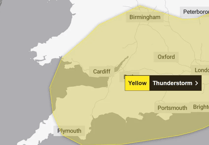REMEMBRANCE commemorations on November 11 will mark 101 years since the First World War came to end.
The military toll of the Great War is widely known – millions of Britons were mobilised, many thousands killed or wounded, and the landscape of British society changed forever.
It does this in a scrapbook style, including personal memoirs, letters home, newspaper cuttings, evocative photographs and postcards.
It charts the mobilisation of Surrey men, the training of foreign troops in the county, objection to military service, defence against invasion, voluntary work and fundraising, the experiences of women and children, shortages, industrial supply to the armed forces and the commemoration of those who gave their lives.
The most famous soldier to pass through Witley Camp was the renowned poet Wilfred Owen, killed in action in 1918.
Writing to his mother in 1916, he said: ‘Got a car from Milford to the camp two or three miles off: a vast affair on the top of the hill with pines interspersed amongst the huts.
The threat – both real and perceived – of spies and enemy agents was a great concern.
In 1918 Surrey chief constable Sant reported a former German cavalryman had been released from internment and “for some inexplicable reason” was living in Farnham.





Comments
This article has no comments yet. Be the first to leave a comment.